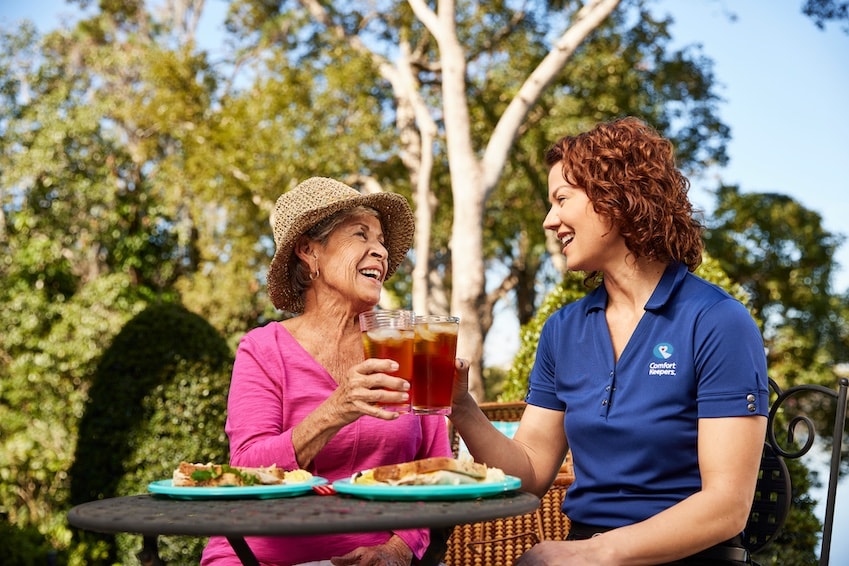The Importance of Staying Hydrated
Staying hydrated is essential for maintaining health and keeping critical bodily functions working properly. Keeping a few tips in mind will ensure that seniors stay hydrated and continue to enjoy the activities that bring them joy.

Warmer weather is a great invitation to enjoy the outdoors and nature.
Staying hydrated is essential for maintaining health and keeping critical bodily functions working properly. Hydration can be a challenge for some seniors because seniors may have a diminished ability to sense thirst, notice changes in body temperature, and may be taking medications that have a dehydrating effect. Keeping a few tips in mind will ensure that seniors stay hydrated and continue to enjoy the activities that bring them joy.
Older adults looking to stay hydrated throughout the day should try these tips to get started. Being dehydrated can cause confusion, headaches, elevated heart rate, muscle weakness, and fatigue. Seniors who think they may be dehydrated should discuss their symptoms with their doctor before changing their fluid intake. Seniors should discuss hydration with their doctor as only can a healthcare professional recommend how much water someone needs, and they can also provide guidance and tips on managing water intake.
- Create a schedule – drinking a lot of water in one sitting can be difficult. However, creating a schedule that accounts for daily activity, physician-recommended intake levels, and the preferences of the senior can help keep hydration on track.
- Eat water-rich foods – cucumbers, watermelon, apples, and other water-rich produce can help seniors get more fluids at mealtimes. Broth is also a good option.
- Make water more interesting – For those that don’t enjoy drinking water, adding small amounts of juice or flavoring to water can make it less boring. Popsicles are also a great option…especially on warm days!
- Reduce water loss – excessive sweating can contribute to dehydration – keeping inside temperatures at a reasonable level, and being mindful of fluid loss during outside activities, can help seniors stay hydrated.
- Don’t wait for thirst – often, when seniors feel thirsty; they may already be dehydrated.
Comfort Keepers® Can Help
Comfort Keepers can provide support for seniors that are concerned about the issue of hydration. Our caregivers can provide transportation to healthcare appointments, assist with meal preparation and planning, and provide support for physician-prescribed hydration regimens. Our goal is to support physical and emotional care goals and to elevate the spirits of our clients and their families every day.
To learn more about our in-home care services, contact your local Comfort Keepers location today.
References
Centers for Disease Control and Prevention. “Get the Facts: Drinking Water and Intake.” Web. 2016.
FamilyDoctor.org. “Hydration: Why It’s So Important.” Web. 2017.
Mayo Clinic. “Dehydration.” Web. 2018.
WebMD. “What is Dehydration? What Causes It?” Web. 2019
Healthline – The Causes and Symptoms of Dehydration in Older Adults
Sign up to receive helpful info right to your inbox.
We understand choosing an in-home care provider can be a difficult decision, and we want to make your journey as easy as possible. We're here to support you by providing helpful senior care tips and information on in-home care and senior health and wellbeing topics.
Start a Job with a Purpose
Uplifting training and support for you every step of the way.
Apply to be a caregiver







